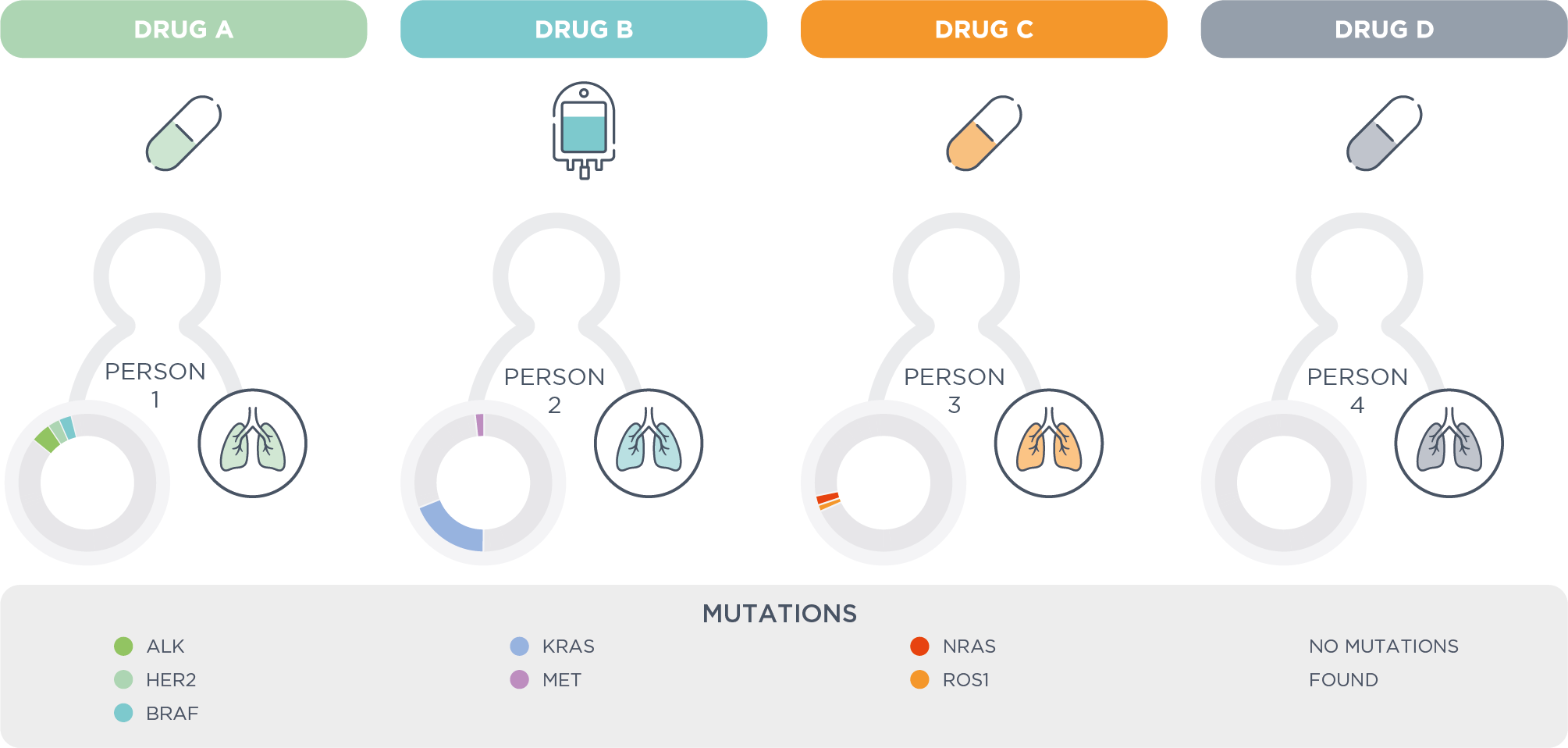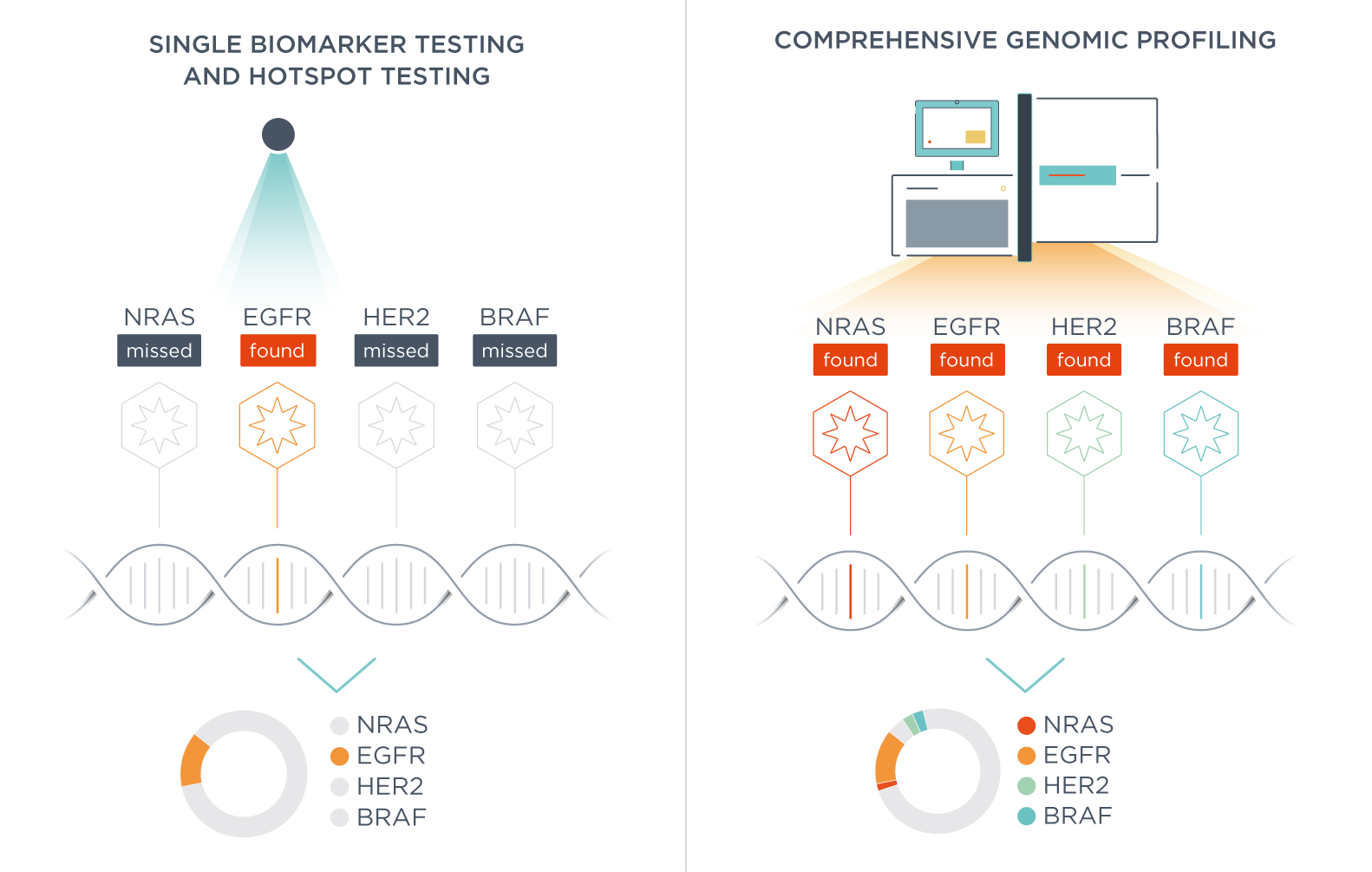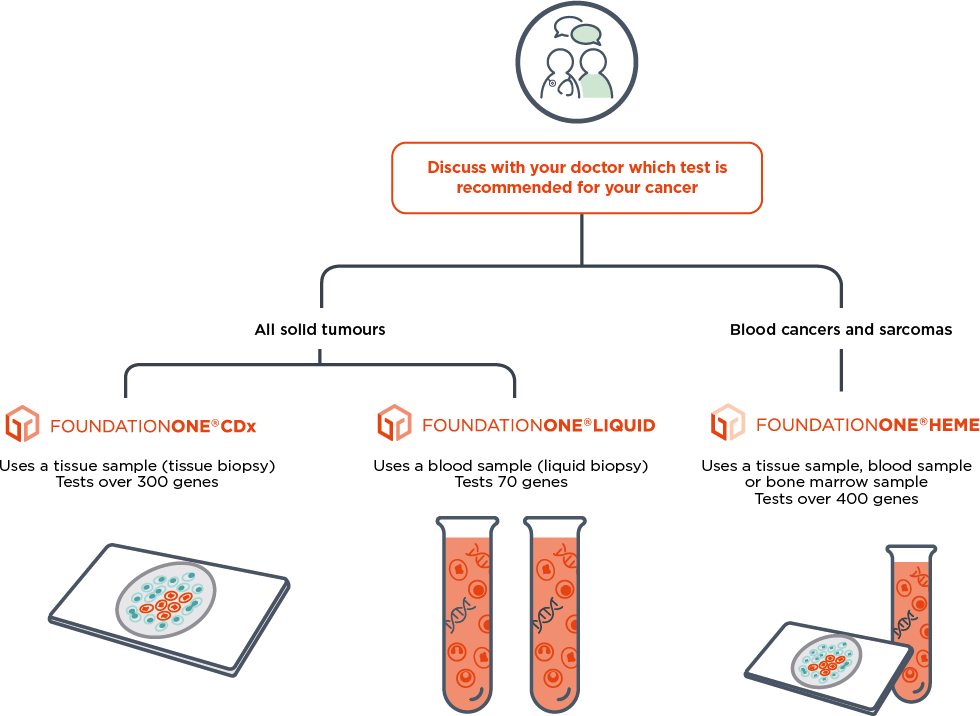
References
- Frampton GM et al. Nat Biotechnol 2013; 31: 1023–1031.
- Dong L et al. Curr Genomics 2015; 16: 253–263.
- Sicklick JK et al. Nat Med 2019; 25: 744–750.
- American Cancer Society Glossary. Cancer. Available at: https://www.cancer.org/content/cancer/en/cancer/glossary.html?term=cancer (Accessed August 2019).
- American Cancer Society Glossary. Mutations. Available at: https://www.cancer.org/content/cancer/en/cancer/glossary.html?term=mutation (Accessed August 2019)
- Baumgart M et al. Am J Hematol Oncol 2015; 11: 10–13.
- Schwaederle M, Kurzrock R. Oncoscience 2015; 2: 779–780.
- Heim D et al. Int J Cancer 2014; 135: 2362–2369.
- NCCN Clinical Practice Guidelines in Oncology (NCCN Guidelines). Non-Small Cell Lung Cancer. V.2.2019, 2018. Available at: https://www.nccn.org/professionals/physician_gls/recently_updated.aspx (Accessed August 2019).
- Ohashi K et al. Clin Cancer Res 2013; 19: 2584–2591.Rozenblum AB et al. J Thorac Oncol 2017; 12: 258–268.
- Naidoo J, Drilon A. Am J Hematol Oncol 2014: 10: 4–11.
- Suh JH et al. Oncologist 2016; 21: 684–691.
- FoundationOne®CDx Technical Specifications, 2018. Available at: www.rochefoundationmedicine.com/f1cdxtech (Accessed August 2019).
- FoundationOne®Liquid Technical Specifications, 2018. Available at: https://www.foundationmedicine.com/genomic-testing/foundation-one-liquid (Accessed August 2019).
- Clark TA, et al. J Mol Diagn 2018; 20: 686–702.
- FoundationOne®Heme Technical Specifications, 2017. Available at: www.foundationmedicine.com/genomic-testing/foundation-one-heme. (Accessed August 2019).
- NCCN Clinical Practice Guidelines in Oncology (NCCN Guidelines). Soft Tissue Sarcoma. V.2.2019, 2019. Available at: https://www.nccn.org/professionals/physician_gls/recently_ updated.aspx (Accessed August 2019).
- Groisberg R et al. Oncotarget 2017; 8: 39254–39267.
- Gounder M et al. Presented at ASCO Annual Meeting 2017, Chicago (Illinois), USA: Abstract 11001.
- He J et al. Blood 2016; 127: 3004–3014.
- Galanina N et al. Cancers (Basel) 2018; 11.pii: E11.
- Goodman AM et al. JCO Precis Oncol 2017. doi: 10.1200/PO.16.00004.
- Heuck C et al. Blood 2015; 126: 369.
- FoundationOne®CDx Sample report 2018. Available at: www.rochefoundationmedicine.com/reporting (Accessed August 2019).



